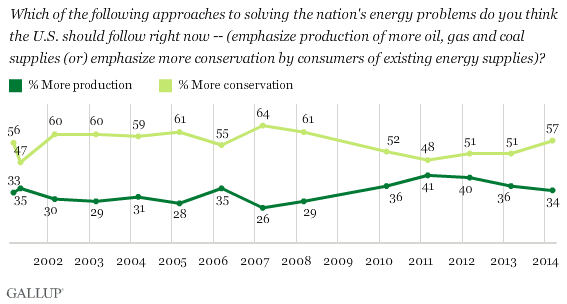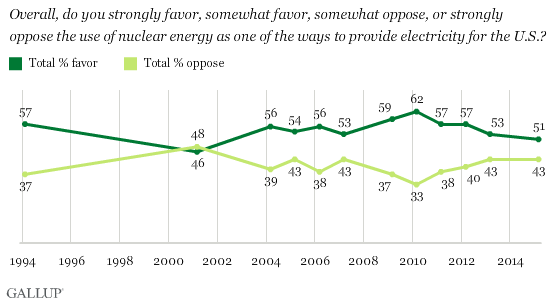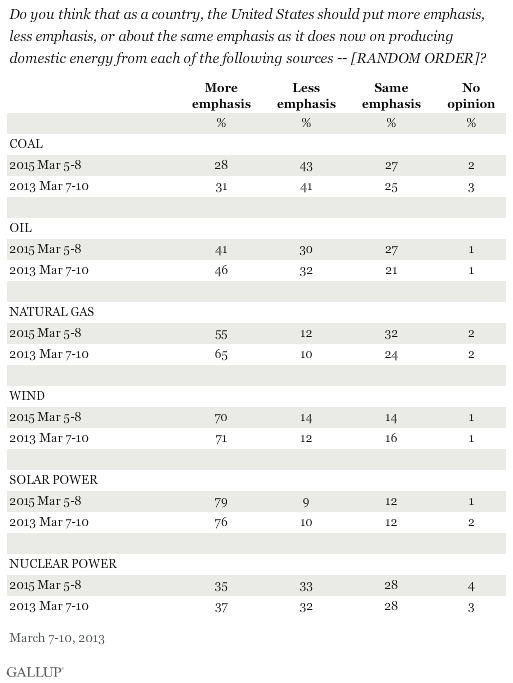Environment & Energy
Related: About this forumTexas and California Have Too Much Renewable Energy
https://www.technologyreview.com/s/601221/texas-and-california-have-too-much-renewable-energy/[font size=4]The rapid growth of wind and solar power in the states is wreaking havoc with energy prices.[/font]
by Richard Martin April 7, 2016
[font size=3]Solar and wind power are coming online at rates unforeseen only a few years ago. That’s a good thing if your goal is to decarbonize the energy sector. But if you’re a utility or independent power producer and you make your money selling electricity, it can be not such a good thing.
In places with abundant wind and solar resources, like Texas and California, the price of electricity is dipping more and more frequently into negative territory. In other words, utilities that operate big fossil-fuel or nuclear plants, which are very costly to switch off and ramp up again, are running into problems when wind and solar farms are generating at their peaks. With too much energy supply to the grid, spot prices for power turn negative and utilities are forced to pay grid operators to take power off their hands.
That’s happened on about a dozen days over the past year in sunny Southern California, according to data from Bloomberg, and it’s liable to happen more often in the future. “In Texas, power at one major hub traded below zero for almost 50 hours in November and again in March,” according to the state’s grid operator. In Germany, negative energy prices have become commonplace, dramatically slashing utility revenues despite renewable energy subsidies that bolster electricity prices much more than in the United States.
The first solution to below-zero prices is to build more transmission to ship the power to places where demand is high. Germany now makes close to 2 billion euros a year off energy exports to neighboring countries, according to Berlin’s Fraunhofer Institute. But building out new long-distance, high-voltage transmission lines is expensive: Texas has spent $7 billion on transmission lines to ship power from the windy flatlands of west Texas to Dallas and Houston.
…[/font][/font]
Jerry442
(1,265 posts)This is your thing. Shouldn't we see industries spring up (like, say, production of hydrogen and oxygen) that take advantage of intermittent low-cost electrical power?
kristopher
(29,798 posts)They are regulated monopolies with some attempts at limited competition thrown in.
The event the OP characterizes as problematic is the way existing generation is no longer able to pay for itself in the system they designed to keep out renewables.
Jerry442
(1,265 posts)...really, if there was a way to turn inexpensive intermittently available electricity into something valuable, (like My Favorite Martian's flying saucer fuel glink) it's hard to see why there wouldn't be an opportunity here.
cprise
(8,445 posts)The regulated-not-free market that's producing these negative prices at certain times is actually doing its job.
I think the writers at MIT may have been hanging out with their staid Harvard friends a bit too much. And notice, the value judgment in the OP comes courtesy of Forbes magazine.
Remember when they predicted blackouts for Germany as a result of this trend? Equally amusing are the palpitations over "reduced revenues for utilities". Since when is MIT about preserving old business models?
NickB79
(19,253 posts)It seems like a paradox: if we generate too much renewable energy so that the utilities can't make a profit, and they go out of business, who maintains the grid, and with what funds? Is there a model where states can take over and run the grid using taxpayer money?
OKIsItJustMe
(19,938 posts)NickB79
(19,253 posts)Xcel Energy is very big here in Minnesota, so that's what my frame of reference is.
kristopher
(29,798 posts)The very wide range of assets would be assessed in light of emerging market conditions and regulatory guidance. As usual, the small investors would get screwed, and the preferred would get, well, preferential consideration.
It would be interesting to watch it roll out.
cprise
(8,445 posts)They are suggesting failure of new (renewable) technologies because old business models aren't preserved... their number$ flipped upside-down for a few hours.
I suppose they have some IBM 360 mainframes they'd like to sell us for browsing the web.
kristopher
(29,798 posts)Dealing with those kinds of objections is always part of the process.


This question yields a much better insight into public preferences overall

http://www.gallup.com/poll/2167/energy.aspx